Стэнли Кубрик. Американский режиссер [заметки]
1
Kirk Douglas, The Ragman’s Son (New York: Simon and Schuster, 1988), 186.
2
Здесь и далее – примечания автора обозначены цифрами и приводятся в конце книги; примечания переводчика – латинскими буквами, находятся внизу страницы.
3
James Naremore, On Kubrick (London: British Film Institute, 2007), 40.
4
Robert Emmet Ginna interview with SK, University of the Arts, London, Stanley Kubrick Archive (hereinafter SKA), SK/1/2/8/2.
5
Dalia Karpel, “The Real Stanley Kubrick,” Haaretz, November 3, 2005, https://www.haaretz.com/1.4880226.
6
Stanley Kubrick: A Life in Pictures, dir. Jan Harlan (2001).
7
Mary Panzer, “Stanley Kubrick: Eyes Wide Open,” Vanity Fair, January 22, 2007, https://www.vanityfair.com/news/2005/03/kubrick200503 (Marcus quotation); Michael Herr, Kubrick (New York: Grove, 2000), 53.
8
Vicente Molina Foix interview with SK, Cinephilia and Beyond, 1980, https://cinephiliabeyond.org/interview-stanley-kubrick-vicente-molina-foix/.
9
Pauline Kael, “Stanley Strangelove” (review of A Clockwork Orange), New Yorker, January 1, 1972, https://scrapsfromtheloft.com/2016/09/18/a-clockwork-orange-pauline-kael/; Alex Ross, “Stanley Kubrick: Take One, Take Two,” Slate, March 8, 1999, https://slate.com/news-and-politics/1999/03/stanley-kubrick-take-1-take-2.html; Robert Kolker, The Extraordinary Image (New Brunswick: Rutgers University Press, 2016), 141, 205.
10
Stanley Kubrick: A Life in Pictures (first Herr quote); Dan Richter, Moonwatcher’s Memoir (New York: Carroll and Graf, 2002), 136; “For Him, Everything Was Possible,” Ken Adam interview with SK, Kinematograph 20 (2004): 94; Terry Southern, “Strangelove Outtake: Notes from the War Room,” Grand Street 49 (Summer 1994): 69; Herr, Kubrick, 54; Filmworker, dir. Tony Zierra (2017) (Leone quote); Vincent LoBrutto, Stanley Kubrick (New York: DaCapo, 1999), 348 (McDowell quote); Douglas, Ragman’s Son, 333.
11
Jay Cocks, “Stanley Kubrick,” in The Making of 2001: A Space Odyssey, ed. Stephanie Schwam (New York: Random House, 2000), 3; Filmworker (Vitali quote).
12
Michael Benson, Space Odyssey (New York: Simon and Schuster, 2018), 176 (Unsworth quote); Peter Bogdanovich, “What They Say about Stanley Kubrick,” New York Times Magazine, July 4, 1999, https://www.nytimes.com/1999/07/04/magazine/what-they-say-about-stanley-kubrick.html (Howard quote).
13
Vincent LoBrutto, Stanley Kubrick (1997; New York: Da Capo Press, 1999), 402.
14
Английская поговорка all work and no play makes Jack a dull boy означает, что в жизни должно быть место и работе, и отдыху. Распространен целый ряд вариантов как буквального, так и художественного перевода, но поскольку в дальнейшем автор книги подробно анализирует и обыгрывает эту фразу, мне кажется наиболее уместным здесь либо вариант, приведенный выше, либо такой: «Джек все работал и не играл и невеселым мальчиком стал».
15
Nathan Abrams, Stanley Kubrick (New Brunswick, NJ: Rutgers University Press, 2018), 13, 59; Karpel, “The Real Stanley Kubrick” (Christiane Kubrick quote).
16
Naremore, On Kubrick, 23–24.
17
Кубрик вместо формы единственного числа alumnus «выпускник» ошибочно использует форму множественного числа alumni «выпускники».
18
Jeremy Bernstein interview with SK, 1965, https://www.indiewire.com/2013/12/listen-rare-76-minute-interview-with-stanley-kubrick-about-his-start-in-films-nuclear-war-chess-strategies-248700/ (first quote); “Kubrick on The Shining: An Interview with Michel Ciment” (1980), http://www.visual-memory.co.uk/amk/doc/interview.ts.html?LMCL=gCIFLU. Примечания
19
Mary Panzer, “Stanley Kubrick: Eyes Wide Open,” Vanity Fair, January 22, 2007, https://www.vanityfair.com/news/2005/03/kubrick200503.
20
Peter Bogdanovich, “What They Say about Stanley Kubrick,” New York Times Magazine, July 4, 1999, https://www.nytimes.com/1999/07/04/magazine/what-they-say-about-stanley-kubrick.html.
21
Nathan Abrams, Stanley Kubrick (New Brunswick, NJ: Rutgers University Press, 2018), 7.
22
Robert Emmet Ginna interview with SK, University of the Arts, London, Stanley Kubrick Archive (hereinafter SKA), SK/1/2/8/2.
23
Bogdanovich, “What They Say.”
24
Bogdanovich, “What They Say.”
25
По правилам бейсбола после четвертого промаха он получит «уолк» – разновидность штрафа, который позволит сопернику просто перейти на следующую базу.
26
Bernstein interview.
27
Abrams, Stanley Kubrick, 35.
28
Bernstein interview.
29
Vincent LoBrutto, Stanley Kubrick (New York: DaCapo, 1999), 94.
30
David Vaughan in Walter Sobotka, ed., The Book of Ruth (New York, 1968), 78 (chess); Bogdanovich, “What They Say” (early quote).
31
Gene Phillips, “Killer’s Kiss,” in The Stanley Kubrick Archives, ed. Alison Castle (New York: Taschen, 2004), 282 (first two quotes); Ginna interview (third quote).
32
Sobotka, Book of Ruth, 52.
33
Cited in Dalya Alberge, “Newly Found Stanley Kubrick Script Ideas Focus on Marital Strife,” Guardian, July 12, 2019, https://www.theguardian.com/film/2019/jul/12/newly-found-stanley-kubrick-script-ideas-focus-marital-strife.
34
Brown Wallet E, SKA, SK shelf 11.
35
Brown Wallet E, SKA, SK shelf 11.
36
Romain LeVern interview with James B. Harris, Chaos, 2018 (my translation), http://www.chaosreign.fr/james-b-harris-eyes-wide-shut-est-le-moins-bon-film-de-stanley-kubrick/.
37
Bogdanovich, “What They Say.”
38
Перевод названия фильма «Убийство», под которым он известен в русском прокате, ошибочен – в фильме речь не об убийстве, а об ограблении; killing в американском сленге означает примерно то же, что и оригинальное название книги Л. Уайта, – «большой куш».
39
Robert Polito, Savage Art (New York: Knopf, 1995), 394.
40
LeVern interview with James B. Harris (first quote); Samuel B. Prime interview with James B. Harris, Notebook, November 13, 2017 https://mubi.com/notebook/posts/the-other-side-of-the-booth-a-profile-of-james-b-harris-in-present-day-los-angeles (second quote).
41
Interview with Sterling Hayden, 1984, The Killing Blu-ray.
42
Hayden interview.
43
John Baxter, Stanley Kubrick (New York: Carroll and Graf, 1997), 86.
44
Baxter, Stanley Kubrick, 86.
45
Romain LeVern interview with James B. Harris, Chaos, 2018 (my translation), http://www.chaosreign.fr/james-b-harris-eyes-wide-shut-est-le-moins-bon-film-de-stanley-kubrick/.
46
Author interview with Nathan Abrams, July 16, 2018.
47
Author interview with Jan Harlan, July 6, 2018 (Chess Story).
48
Gary Giddins, Paths of Glory Blu-ray commentary.
49
Baxter, Stanley Kubrick, 93.
50
Giddins, Paths of Glory commentary.
51
Alexander Walker, Sybil Taylor, and Ulrich Ruchti, Stanley Kubrick, Director (New York: Norton, 1971), 14 (first quote); Raymond Haine interview with SK, 1957, in The Stanley Kubrick Archives, ed. Alison Castle (New York: Taschen, 2004), 309 (second quote).
52
Giddins, Paths of Glory commentary.
53
Gene Phillips, “Paths of Glory,” in The Stanley Kubrick Archives, 300.
54
Interview with James B. Harris, Aero Theater, Santa Monica, September 28, 2017, https://www.youtube.com/watch?v=IAQbxkv6vVs.
55
Author interview with Christiane Kubrick, July 8, 2018.
56
Jon Ronson, “After Stanley Kubrick,” Guardian, August 18, 2010. Примечания
57
Valerie Jenkins interview with Christiane Kubrick, Evening Standard, September 10, 1972.
58
Author interview with Christiane Kubrick.
59
Author interview with Christiane Kubrick.
60
Author interview with Christiane Kubrick (first and third quotes); Geoffrey Cocks, The Wolf at the Door (New York: Peter Lang, 2004), 26 (second quote).
61
Michael Herr, Kubrick (New York: Grove, 2000), 48.
62
Calder Willingham letter to SK, December 14, 1959, University of the Arts, London, Stanley Kubrick Archive (hereinafter SKA), SK/10/8/4.
63
Robert Emmet Ginna interview with SK, SKA, SK/1/2/8/2.
64
Baxter, Stanley Kubrick, 129.
65
Ginna interview.
66
Danielle Heymann interview with SK, published in Le Monde, October 17, 1987, here quoted from SKA, SK/1/2/8/5.
67
Gene Phillips, “Spartacus,” in The Stanley Kubrick Archives, 318.
68
Ginna interview.
69
Terry Southern interview with SK, 1962, The Stanley Kubrick Archives, 343.
70
Ginna interview.
71
Kirk Douglas letter to Stan Margulies, April 27, 1959, SKA, SK/9/4/3.
72
On SK’s idea of the “small” Spartacus vs. Trumbo’s and Douglas’s “big” one, see Fiona Radford, “Having His Cake and Eating It Too: SK and Spartacus,” The Stanley Kubrick Archives, 105, 110–11.
73
Peter Ustinov letter to SK, no date, SKA, SK/9/4/2–6.
74
SK letter to Laurence Olivier, June 5, 1959, SKA, SK/9/4/3.
75
Pauline Kael, 5001 Nights at the Movies (New York: Henry Holt, 1991), 547.
76
Nathan Abrams, Stanley Kubrick (New Brunswick, NJ: Rutgers University Press, 2018), 69.
77
Vincent LoBrutto, Stanley Kubrick (New York: DaCapo, 1999), 187.
78
LoBrutto, Stanley Kubrick, 190.
79
SK letter to Calder Willingham, no date, SKA, SK/10/8/4.
80
Calder Willingham letter to SK, December 14, 1959, SKA, SK/10/8/4.
81
Martin Russ letter to SK, no date, SKA, SK/10/8/7.
82
Brian Boyd, Vladimir Nabokov: The American Years (Princeton: Princeton University Press, 1991), 407.
83
James Naremore, On Kubrick (London: British Film Institute, 2007), 99.
84
Vladimir Nabokov, Lolita: A Screenplay, xii – xiii.
85
Laurence Olivier letter to SK, December 15, 1959, SKA, SK/10/8/4.
86
James Harris letter to SK, December 22, 1959, SKA, SK/10/8/4 (Bardot); LoBrutto, Stanley Kubrick, 203 (Kubrick quote); Baxter, Stanley Kubrick, 150 (Nabokov quote).
87
Sue Lyon letter to James Harris, November 30, 1960, signed also by her mother and her teacher Bev Westman, SKA, SK/10/8/4.
88
SK letter to Peter Ustinov, May 20, 1960, SKA, SK/10/8/4, cited in Karyn Stuckey, “Re-Writing Nabokov’s Lolita,” in Stanley Kubrick: New Perspectives, ed. Tatjana Ljujicґ, Peter Krдmer, and Richard Daniels (London: Black Dog Publishing, 2015), 127.
89
SK letter to Ustinov, May 20, 1960.
90
Stuckey, “Re-Writing Nabokov’s Lolita,” 128 (first scene); Mick Broderick, Reconstructing Strangelove (New York: Columbia University Press, 2017), 86; “Stanley Kubrick’s Dr. Strangelove,” Cinephilia and Beyond, https://cinephiliabeyond.org/stanley-kubricks-dr-strangelove-the-sharpest-most-cautioning-hilarious-political-satire/ (quotes).
91
From “Outline of Lolita,” included with SK letter to Ustinov, cited in Nathan Abrams, “An Alternative New York Jewish Intellectual,” Ljujicґ, Krдmer, and Daniels, Stanley Kubrick: New Perspectives, 70.
92
LoBrutto, Stanley Kubrick, 204 (Granz); Richard Corliss, Lolita (London: British Film Institute, 1994), 47.
93
Roger Lewis, The Life and Death of Peter Sellers (New York: Applause, 2000), 346.
94
Lewis, Life and Death, 344. Примечания
95
LoBrutto, Stanley Kubrick, 205.
96
Filippo Ulivieri, “Waiting for a Miracle: A Survey of Stanley Kubrick’s Unrealized Projects,” Cinergie, September 4, 2017, https://cinergie.unibo.it/article/view/7349/7318.
97
Vladimir Nabokov, The Annotated Lolita, ed. Alfred Appel (New York: Vintage, 1991), 283.
98
Southern interview, 343.
99
SK letter to Peter Ustinov, May 20, 1960, SKA, SK/10/8/4.
100
Jeremy Bernstein interview with SK, 1965, https://www.indiewire.com/2013/12/listen-rare-76-minute-interview-with-stanley-kubrick-about-his-start-in-films-nuclear-war-chess-strategies-248700/.
101
John Collins letter to SK, May 9, 1961, SKA, SK/10/8/7.
102
Author interview with Christiane Kubrick.
103
Author interview with Christiane Kubrick (first two quotes); Baxter, Stanley Kubrick, 166, citing a Times of London February 5, 1973, interview with Christiane Kubrick (third quote).
104
Jeremy Bernstein interview with SK, 1965, https://www.indiewire.com/2013/12/listen-rare-76-minute-interview-with-stanley-kubrick-about-his-start-in-films-nuclear-war-chess-strategies-248700/.
105
Five-O interview with James B. Harris, 2002, Scraps from the Loft https://scrapsfromtheloft.com/2018/02/16/james-b-harris-interview-2002/; Alex Singer letter to SK, March 28, 1964, University of the Arts, London, Stanley Kubrick Archive (hereinafter SKA), SK/11/9/97.
106
F. X. Feeney interview with James B. Harris, Director’s Guild of America, spring 2013, https://www.dga.org/Craft/DGAQ/All-Articles/1302-Spring-2013/James-Harris-on-Stanley-Kubrick.aspx.
107
Romain LeVern interview with James B. Harris, Chaos, 2018 (my translation), http://www.chaosreign.fr/james-b-harris-eyes-wide-shut-est-le-moins-bon-film-de-stanley-kubrick/.
108
LeVern interview with James B. Harris.
109
Sharon Ghamari-Tabrizi, The Worlds of Herman Kahn (Cambridge: Harvard University Press, 2005), 5 (“immediate peril”); Herman Kahn, On Thermonuclear War (Princeton: Princeton University Press, 1960), 34, 91, 94 (statistics and final quote).
110
Ghamari-Tabrizi, Worlds of Herman Kahn, 70.
111
Ghamari-Tabrizi, Worlds of Herman Kahn, 70.
112
Mick Broderick, Reconstructing Strangelove (New York: Columbia University Press, 2017), 58.
113
Ghamari-Tabrizi, Worlds of Herman Kahn, 123.
114
Bernstein interview.
115
See P. D. Smith, Doomsday Men (New York: St. Martin’s, 2007).
116
Eric Schlosser, “Almost Everything in ‘Dr. Strangelove’ Was True,” New Yorker, January 17, 2014.
117
Author interview with Christiane Kubrick, July 8, 2018.
118
Christiane Kubrick interview.
119
Christiane Kubrick interview.
120
Буквальный перевод его имени и фамилии – «Джек-Потрошитель».
121
Speaking during a cabinet meeting on July 25, 1956, Eisenhower was referring to the hysterical behavior likely to follow news of a Russian nuclear strike. http://www.conelrad.com/atomicsecrets/secrets.php?secrets=e18.
122
John Baxter, Stanley Kubrick (New York: Carroll and Graf, 1997), 181.
123
Richard Hofstadter, The Paranoid Style in American Politics (New York: Knopf, 1965), 28, 31.
124
SKA, SK/11/1/9, cited in Nathan Abrams, “An Alternative Jewish Intellectual,” Stanley Kubrick: New Perspectives, ed. Tatjana Ljujicґ, Peter Krдmer, and Richard Daniels (London: Black Dog Publishing, 2015), 74.
125
Cited in Gene Phillips, “Dr. Strangelove,” in The Stanley Kubrick Archives, ed. Alison Castle (New York: Taschen, 2004), 351.
126
SK letter to George C. Scott, November 12, 1963, SK 11/9/97.
127
Terry Southern, “Strangelove Outtake: Notes from the War Room,” Grand Street 49 (Summer 1994): 67. Примечания
128
Southern, “Strangelove Outtake,” 72.
129
Имеется в виду гипотеза антрополога Рэймонда Дарта о том, что люди произошли от хищной обезьяны, «обезьяны-убийцы», и движущей силой эволюции стало именно желание убивать.
130
Слово представляет собой стяжение основ war + orgasm, буквально может быть переведено как «оргазм от войны».
131
Baxter, Stanley Kubrick, 180.
132
Anne Quito, “The Man Who Designed Dr. Strangelove’s Apocalyptic Set Shaped Today’s Negotiation Rooms,” Quartz, March 15, 2016, https://qz.com/638778/the-man-who-designed-dr-strangeloves-apocalyptic-set-shaped-todays-negotiation-rooms/.
133
Southern, “Strangelove Outtake,” 80.
134
James Mason letter to SK, January 20, 1964, SKA, SK/11/9/77. The PR firm’s letter, from Allan, Foster, Ingersoll and Weber, mentions Hedda Hopper, Vernon Scott of UPI, Harrison Carroll, and Phil Schener.
135
SK letter to Robert Murray at the Aspen Institute for Humanistic Studies, no date, SKA, SK 11/9/94.
136
Robert Brustein, “Out of This World,” New York Review of Books, February 6, 1964; SK letter to Anthony Macklin, August 11, 1964, SKA, SK/11/9/77.
137
SK letter to Herbert Mitgang of CBS News, June 18, 1964, SKA, SK/11/9/77; SK letter to Gilbert Seldes, April 6, 1964, SKA, SK/11/9/97; SK letter to the Actors Studio, December 7, 1964, SKA, SK/11/9/1.
138
Todd Gitlin letter to SK, marked “unanswered,” May 29, 1964, SKA, SK/11/9/97; SK letter to SANE, July 9, 1964, SKA, SK/11/9/97; SK letter to Johnson campaign, September 18, 1964, SKA, SK11/9/94.
139
SK letter to Thomas Fryer, August 19, 1964, SKA, SK/11/9/94.
140
SK, undated essay, SKA, SK11/9/94.
141
Author interview with Julian Senior, July 9, 2018.
142
SK letter to Martin Russ, August 20, 1964, SKA, SK11/9/93.
143
SKA, SK/11/9/77.
144
SK letter to Robert Ettinger, August 12 1964, SKA, SK/11/9/94.
145
SK letter to Robert Ettinger, August 20, 1964, SKA, SK11/9/94. In his Playboy interview with Eric Norden (September 1968), Kubrick talked at length about Ettinger’s ideas.
146
SKA, SK/11/9/5.
147
Robert Ardrey, African Genesis (New York: Dell, 1961).
148
David Thomson, The Whole Equation (New York: Knopf), 155; Martin Scorsese, Introduction to Michel Ciment, Kubrick: The Definitive Edition (New York: Faber and Faber, 2003).
149
Michael Benson, Space Odyssey (New York: Simon and Schuster, 2018), 39, 22.
150
Jeremy Bernstein interview with SK, 1965, https://www.indiewire.com/2013/12/listen-rare-76-minute-interview-with-stanley-kubrick-about-his-start-in-films-nuclear-war-chess-strategies-248700/.
151
Danielle Heymann interview with SK, published in Le Monde, October 17, 1987, here quoted from University of the Arts, London, Stanley Kubrick Archive, SK/1/2/8/5.
152
Bernstein interview.
153
Bernstein interview.
154
Benson, Space Odyssey, 88 (Christiane Kubrick quote); “Kubrick on The Shining: An Interview with Michel Ciment” (SK quote).
155
В переводе книги А. Кларка робота называют ЭАЛ.
156
Benson, Space Odyssey, 76 (Clarke quote); Nathan Abrams, Stanley Kubrick (New Brunswick, NJ: Rutgers University Press, 2018), 133 (SK quote).
157
Первая песня, которую когда-либо исполнил компьютер.
158
Benson, Space Odyssey, 211.
159
Abrams, Stanley Kubrick, 132.
160
Leo Steinberg, Other Criteria (Chicago: University of Chicago Press, 1971), 407.
161
Benson, Space Odyssey, 181.
162
Dan Richter, Moonwatcher’s Memoir (New York: Carroll and Graf, 2002), 38.
163
Richter, Moonwatcher’s Memoir, 130.
164
Arthur C. Clarke, 2001: A Space Odyssey (New York: Penguin/Roc, 1968), 297.
165
Benson, Space Odyssey, 418.
166
Benson, Space Odyssey, 431. Примечания
167
Michael Powell, “A Survivor of Film Criticism’s Heroic Age,” New York Times, July 9, 2009.
168
Alexander Walker, Sybil Taylor, and Ulrich Ruchti, Stanley Kubrick, Director (New York: Norton, 1971), 162.
169
Ardrey, African Genesis, 348.
170
SK letter to Ron Lubin, August 18, 1964, University of the Arts, London, Stanley Kubrick Archive, SK/11/9/100.
171
Joseph Gelmis interview with SK (1970), in Stanley Kubrick: Interviews, ed. Gene Phillips (Jackson: University Press of Mississippi), 84.
172
A transcript of SK’s conversations with Felix Markham is included in Stanley Kubrick’s Napoleon: The Greatest Movie Never Made, ed. Alison Castle (Cologne: Taschen, 2017).
173
Stanley Kubrick, Napoleon screenplay, http://www.raindance.co.uk/site/picture/upload/napoleon.pdf.
174
Gelmis interview, 84.
175
Kubrick, Napoleon screenplay.
176
Kubrick Remembered, dir. Gary Khammar (2014); see Vincent Canby’s review of Barry Lyndon, New York Times, December 21, 1975 (“Please don’t send me any more pictures where the hero writes with a feather”).
177
Eva-Maria Magel, “The Best Movie (N)ever Made,” Kinematograph 20 (2004): 165.
178
Steven Englund, Napoleon (Cambridge: Harvard University Press, 2004), xiv.
179
Vincent LoBrutto, Stanley Kubrick (New York: DaCapo, 1999), 336.
180
Anthony Burgess, A Clockwork Orange (1962; New York: Norton, 1986), 42, 38.
181
LoBrutto, Stanley Kubrick, 338.
182
John Baxter, Stanley Kubrick (New York: Carroll and Graf, 1997), 247.
183
Julian Rice describes Alex as an overgrown child in Kubrick’s Hope (Lanham, MD: Scarecrow/Rowman and Littlefield, 2008), 67–74.
184
Robert Kolker, The Cultures of American Film (New York: Oxford University Press, 2015), 233–35.
185
Альфред Э. Ньюман – вымышленный мальчик, талисман юмористического журнала MAD. Его девиз – What, me worry? («С чего бы это мне волноваться?»)
186
Andrew Bailey interview with SK, Rolling Stone, January 20, 1972.
187
Burgess, A Clockwork Orange, 130.
188
Burgess, A Clockwork Orange, 131.
189
Author interview with Tom Courtenay, July 11, 2017.
190
Burgess, A Clockwork Orange, 28; see the offhanded racist “throw ’em a basketball” joke in Full Metal Jacket.
191
В оригинале используется архаичная фраза How art thou?, типичная для диалогов в пьесах Шекспира.
192
Kolker, The Extraordinary Image, 162.
193
Times of London obituary of Adrienne Corri, March 25, 2016.
194
Joseph Gelmis interview with SK, cited in LoBrutto, Stanley Kubrick, 360.
195
James Naremore, On Kubrick (London: British Film Institute, 2007), 158–59.
196
Interview with Malcolm MacDowell, A Clockwork Orange Blu-ray.
197
Burgess, A Clockwork Orange, 44–45.
198
Burgess, A Clockwork Orange, 102.
199
Victor Davis interview with SK, Daily Express, January 1972, cited in LoBrutto, Stanley Kubrick, 356; see also Robert Hughes, review of A Clockwork Orange, Time, December 27, 1971.
200
SK, “Now Kubrick Fights Back,” New York Times, February 27, 1972.
201
Burgess, A Clockwork Orange, 172.
202
Pauline Kael, “Stanley Strangelove” (review of A Clockwork Orange), New Yorker, January 1, 1972, https://scrapsfromtheloft.com/2016/09/18/a-clockwork-orange-pauline-kael/.
203
Kael, “Stanley Strangelove.”
204
LoBrutto, Stanley Kubrick, 359.
205
LoBrutto, Stanley Kubrick, 364. Примечания
206
Bailey interview.
207
Author interview with Julian Senior, July 9, 2018.
208
Senior interview.
209
Senior interview.
210
Emilio D’Alessandro, with Filippo Ulivieri, Stanley Kubrick and Me (New York: Arcade, 2012), 70.
211
Peter Bogdanovich, “What They Say about Stanley Kubrick,” New York Times Magazine, July 4, 1999, https://www.nytimes.com/1999/07/04/magazine/what-they-say-about-stanley-kubrick.html.
212
Christopher Anderson, “The Girl Who Has Everything,” People, March 8, 1976, https://people.com/archive/cover-story-the-girl-who-has-everything-vol-5-no-9/.
213
Geoffrey O’Brien, print essay, Barry Lyndon Blu-ray.
214
Bogdanovich, “What They Say.”
215
Bogdanovich, “What They Say” (Adam quote); Filmworker, dir. Tony Zierra (2017) (Senior quote).
216
D’Alessandro, Stanley Kubrick and Me, 59–60.
217
Vincent LoBrutto, Stanley Kubrick (New York: DaCapo, 1999), 403.
218
LoBrutto, Stanley Kubrick, 402.
219
Author interview with Lawrence Malkin, February 12, 2018.
220
Interview with Michel Ciment, Barry Lyndon, Blu-ray.
221
Filmworker.
222
Неточность: в фильме право первого выстрела было у Буллингдона, но он не справился с пистолетом и случайно выстрелил в сторону. Про сатисфакцию тоже спрашивали Буллингдона, т. к. это он вызвал Барри на дуэль.
223
Interview with Adam Eaker, Barry Lyndon Blu-ray.
224
Julian Rice, Kubrick’s Hope (Lanham, MD: Scarecrow/Rowman and Littlefield, 2008), 93.
225
“For weeks,” Emilio D’Alessandro recalled, “the special effects team… had tried and tried again to produce fake blood that convinced Stanley, but he was never satisfied with the color.” D’Alessandro, Stanley Kubrick and Me (New York: Arcade, 2012), 115.
226
John Baxter, Stanley Kubrick (New York: Carroll and Graf, 1997), 314–15.
227
Baxter, Stanley Kubrick, 313.
228
Stanley Kubrick’s The Shining, ed. Danel Olson (Lakewood, CO: Centipede, 2015), 642.
229
Michel Ciment, Kubrick: The Definitive Edition (New York: Faber and Faber, 2003), 189.
230
David Thomson, The Whole Equation (New York: Knopf), 331; Olson, Stanley Kubrick’s The Shining, 631.
231
Nathan Abrams, Stanley Kubrick (New Brunswick, NJ: Rutgers University Press, 2018), 135, compares Jack and HAL.
232
Jack Kroll, review of The Shining, Newsweek, June 2, 1980, https://scrapsfromtheloft.com/2016/09/17/shining-stanley-kubricks-horror-show/.
233
В оригинале используется игра слов, подразумевающая, что отель приказывает Джеку, что делать дальше.
234
Arthur Schopenhauer, The World as Will and Idea, trans. E. F. J. Payne (New York: Dover, 1958), 1: 394–95.
235
Arthur Schopenhauer, letter to Johann Wolfgang von Goethe, November 11, 1815, Gesammelte Briefe, ed. Arthur Hьbscher (Bonn: Bouvier Verlag, 1978), 18.
236
Douglas Luckhurst, The Shining (London: British Film Institute, 2013), 79.
237
Vincent LoBrutto, Stanley Kubrick (New York: DaCapo, 1999), 445.
238
D’Alessandro, Stanley Kubrick and Me, 118.
239
Typed notes and scene outlines from July 11 and August 27, 1977, University of the Arts, London, Stanley Kubrick Archive, SK/15/1/1, SK/15/1/9; “Ending idea… saved by cook,” SK/15/1/3.
240
Baxter, Stanley Kubrick, 319.
241
Olson, Stanley Kubrick’s The Shining, 526 (Vitali quote); Ciment, Kubrick, 301 (Duvall quote).
242
Author interview with Julian Senior, July 9, 2018. Примечания
243
Like Paths of Glory, Dr. Strangelove, and A Clockwork Orange, The Shining ends with an old-fashioned song and a tableau of return.
244
Emilio D’Alessandro, with Filippo Ulivieri, Stanley Kubrick and Me (New York: Arcade, 2012), 135, 139.
245
Dalia Karpel, “The Real Stanley Kubrick,” Haaretz, November 3, 2005, https://www.haaretz.com/1.4880226.
246
Filmworker, dir. Tony Zierra (2017).
247
D’Alessandro, Stanley Kubrick and Me, 170.
248
D’Alessandro, Stanley Kubrick and Me, 168, 78–80 (SK quote and guidelines); Karpel, “The Real Stanley Kubrick” (Christiane Kubrick quote).
249
D’Alessandro, Stanley Kubrick and Me, 150.
250
D’Alessandro, Stanley Kubrick and Me, 74 (phone calls to Barbara); Peter Bogdanovich, “What They Say about Stanley Kubrick,” New York Times Magazine, July 4, 1999, https://www.nytimes.com/1999/07/04/magazine/what-they-say-about-stanley-kubrick.html (Milius quote).
251
Danielle Heymann interview with SK, published in Le Monde, October 17, 1987, here quoted from University of the Arts, London, Stanley Kubrick Archive (hereinafter SKA), SK/1/2/8/5.
252
Michael Herr, Kubrick (New York: Grove, 2000), 11.
253
Herr, Kubrick, 11.
254
Herr, Kubrick, 10.
255
Grover Lewis, “The Several Battles of Gustav Hasford,” LA Times Magazine, June 28, 1987.
256
Gustav Hasford letters to SK, December 5, 1982, SKA shelf 3, box 5 (Full Metal Jacket).
257
Grover Lewis, “The Killing of Gus Hasford,” LA Weekly, June 4–June 10, 1993 (Hasfor quotes); Hasford letters to SK, January 23, 1984, and May 28, 1983, both SKA, SK/16/1/2/4 (demands for return of photos and screenplay credit).
258
SK letter to Gustav Hasford, no date, SKA, SK/16/1/24.
259
Перевод А. Филиппенко.
260
Gustav Hasford, The Short-Timers (1979; New York: Bantam, 1983), 175–76.
261
Jeremy Bernstein interview with SK, 1965, https://www.indiewire.com/2013/12/listen-rare-76-minute-interview-with-stanley-kubrick-about-his-start-in-films-nuclear-war-chess-strategies-248700/.
262
Charlie Kohler interview with SK, East Village Eye, August 1968, https://scrapsfromtheloft.com/2017/01/10/stanley-kubrick-raps/.
263
Сержант-инструктор называет рядового в честь Гомера Пайла, неуклюжего и глуповатого персонажа комедийно-агитационного сериала про американскую морскую пехоту; в другом переводе используется англоязычная версия его прозвища – «рядовой Пайл».
264
Heymann interview.
265
Tim Cahill interview with SK, Rolling Stone, August 27, 1987.
266
Author interview with Vincent D’Onofrio, February 9, 2018.
267
Matthew Modine, Full Metal Jacket Diary (New York: Rugged Land, 2005).
268
Heymann interview.
269
D’Onofrio interview.
270
Interview with Lee Ermey, Full Metal Jacket Blu-ray.
271
В английском языке для обозначения гальюна используется слово head («голова»), и автор книги имеет в виду, что в фильме присутствует игра слов: Хартман как бы говорит: «Что вы делаете в моей голове?», и своим присутствием в его «голове» Шутник и Куча оскверняют его идеалы.
272
В английском языке выражение thousand-yard stare / two-thousand-yard stare используется для обозначения несфокусированного взгляда, который часто наблюдается у солдат с посттравматическим стрессовым расстройством. Выражение восходит к названию картины Томаса Ли, где изображен солдат, переживший боевую психологическую травму.
273
Jay Cocks, commentary, Full Metal Jacket Blu-ray.
274
Michael Herr, Dispatches (1977; New York: Vintage, 1991), 20–21.
275
Издание на русском 1985 года (https://www.rulit.me/author/gerr-majkl/reportazhi-download-358726.html).
276
From SK’s handwritten notes on Hasford’s book, cited in The Stanley Kubrick Archives, ed. Alison Castle (New York: Taschen, 2004), 471.
277
Georg Scesslen, “Shoot Me, Shoot Me,” Kinematograph 20 (2004): 221–22.
278
D’Onofrio interview.
279
Vincent D’Onofrio, commentary, Full Metal Jacket Blu-ray.
280
Tim Cahill interview with SK, Rolling Stone, August 27, 1987.
281
Author interview with Sandy Lieberson, July 13, 2017; Peter Bogdanovich, “What They Say about Stanley Kubrick,” New York Times Magazine, July 4, 1999, https://www.nytimes.com/1999/07/04/magazine/what-they-say-about-stanley-kubrick.html (Southgate quote).
282
Cahill interview. Примечания
283
Cahill interview.
284
Christiane Kubrick, interview, Eyes Wide Shut Blu-ray.
285
Ивр. – «катаклизм».
286
Ulivieri’s is the fullest account of Kubrick’s unrealized projects; Filippo Ulivieri, “Waiting for a Miracle: A Survey of Stanley Kubrick’s Unrealized Projects,” Cinergie, September 4, 2017 https://cinergie.unibo.it/article/view/7349/7318.
287
Geoffrey Macnab, “Kubrick’s Lost Movie: Now We Can See It…” Independent, January 27, 2009, https://www.independent.co.uk/arts-entertainment/films/features/kubricks-lost-movie-now-we-can-see-it-1516726.html (Schindler’s List); Dalia Karpel, “The Real Stanley Kubrick,” Haaretz, November 3, 2005, https:// www.haaretz.com/1.4880226 (Christiane Kubrick quote); University of the Arts, London, Stanley Kubrick Archive (hereinafter SKA), shelf 9, box 3 (Wartime Lies) (script).
288
A selection of Baker’s storyboards is reproduced in A.I.: Artificial Intelligence, ed. Jan Harlan and Jane Struthers (London: Thames and Hudson, 2009).
289
Nathan Abrams, Stanley Kubrick (New Brunswick, NJ: Rutgers University Press, 2018), 269.
290
Joseph McBride, Steven Spielberg (Jackson: University Press of Mississippi, 2010), 483; SKA, shelf 8, box A (SK quote); Harlan and Struthers, A.I.: Artificial Intelligence, 23 (Maitland quote).
291
Molly Haskell, Steven Spielberg (New Haven: Yale University Press, 2017), 174.
292
Robert Emmet Ginna interview with SK, University of the Arts, London, Stanley Kubrick Archive, SK/1/2/8/2.
293
Arthur Schnitzler, Dream Story, in Eyes Wide Shut: A Screenplay and Dream Story (New York: Time Warner, 1999), 235.
294
Scott Feinberg, “Kirk Douglas: ‘I Am Always Optimistic,’ ”Hollywood Reporter, June 6, 2012, http://www.hollywoodreporter.com/news/kirk-douglas-pacemaker-helicopter-crash-stroke-330997.
295
Cited in Robert Kolker and Nathan Abrams, Eyes Wide Shut (New York: Oxford University Press, 2019), 27.
296
SKA shelf 2, EWS 11.
297
Kolker and Abrams, Eyes Wide Shut, 34–35 (Southern quote); SKA shelf 2, box 12 (Eyes Wide Shut) (SK notebook).
298
John le Carrй, The Pigeon Tunnel (New York: Penguin, 2017), 242–43.
299
Frederic Raphael, Eyes Wide Open (New York: Ballantine, 1999), 59.
300
Michel Chion, Eyes Wide Shut (New York: Palgrave Macmillan, 2002), 25.
301
Chion, Eyes Wide Shut, 28; Kolker and Abrams, Eyes Wide Shut, 124 (McQuiston quote).
302
Bogdanovich, “What They Say” (Adam quote); Jon Ronson, “After Stanley Kubrick,” Guardian, August 18, 2010 (Christiane Kubrick quote).
303
David Thomson, Nicole Kidman (New York: Vintage, 2008), 248–49.
304
Interview with Nicole Kidman, Eyes Wide Shut Blu-ray.
305
Kolker and Abrams, Eyes Wide Shut, 89.
306
Kolker and Abrams, Eyes Wide Shut, 107. It was not true, as Thomson reported, that Kubrick barred Cruise from the set for two weeks.
307
Kolker and Abrams, Eyes Wide Shut, 98.
308
Schnitzler, Dream Story, 109.
309
David Denby, “Death Trap,” New York, July 13, 1987, 54; interview with Christiane Kubrick, Eyes Wide Shut Blu-ray.
310
Stephen Hunter, “Kubrick’s Sleepy Eyes Wide Shut,” Washington Post, July 16, 1999 (Catholic Church quote); Lee Siegel, Falling Upwards (New York: Basic, 2006), 229; James Naremore, On Kubrick (London: British Film Institute, 2007), 239.
311
Bogdanovich, “What They Say.”
312
Bogdanovich, “What They Say” (Christiane Kubrick quote); Kolker and Abrams, Eyes Wide Shut, 111 (Cavaciuti quote).
313
Kolker and Abrams, Eyes Wide Shut, 97.
314
Kolker and Abrams, Eyes Wide Shut, 111 (Kubrick operating camera); Lieberson interview. Примечания
315
Filmworker, dir. Tony Zierra (2017).
316
Emilio D’Alessandro, with Filippo Ulivieri, Stanley Kubrick and Me (New York: Arcade, 2012), 330.
317
Yoh Phillips, “Stanley Kubrick’s Unprecedented Influence on Hip Hop,” DJBooth, February 6, 2019, https://djbooth.net/features/2019-02-06-stanley-kubrick-influence-hip-hop.
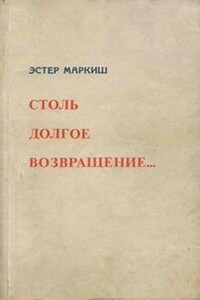
В книге рассказывается история главного героя, который сталкивается с различными проблемами и препятствиями на протяжении всего своего путешествия. По пути он встречает множество второстепенных персонажей, которые играют важные роли в истории. Благодаря опыту главного героя книга исследует такие темы, как любовь, потеря, надежда и стойкость. По мере того, как главный герой преодолевает свои трудности, он усваивает ценные уроки жизни и растет как личность.

В книге рассказывается история главного героя, который сталкивается с различными проблемами и препятствиями на протяжении всего своего путешествия. По пути он встречает множество второстепенных персонажей, которые играют важные роли в истории. Благодаря опыту главного героя книга исследует такие темы, как любовь, потеря, надежда и стойкость. По мере того, как главный герой преодолевает свои трудности, он усваивает ценные уроки жизни и растет как личность.
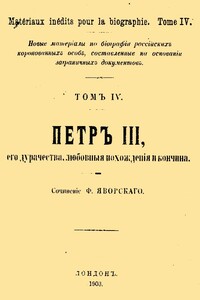
«Великого князя не любили, он не был злой человек, но в нём было всё то, что русская натура ненавидит в немце — грубое простодушие, вульгарный тон, педантизм и высокомерное самодовольство — доходившее до презрения всего русского. Елизавета, бывшая сама вечно навеселе, не могла ему однако простить, что он всякий вечер был пьян; Разумовский — что он хотел Гудовича сделать гетманом; Панин за его фельдфебельские манеры; гвардия за то, что он ей предпочитал своих гольштинских солдат; дамы за то, что он вместе с ними приглашал на свои пиры актрис, всяких немок; духовенство ненавидело его за его явное презрение к восточной церкви».Издание 1903 года, текст приведен к современной орфографии.
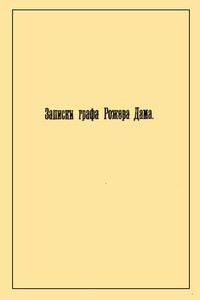
В 1783, в Европе возгорелась война между Турцией и Россией. Граф Рожер тайно уехал из Франции и через несколько месяцев прибыл в Елисаветград, к принцу де Линь, который был тогда комиссаром Венского двора при русской армии. Князь де Линь принял его весьма ласково и помог ему вступить в русскую службу. После весьма удачного исполнения первого поручения, данного ему князем Нассау-Зигеном, граф Дама получил от императрицы Екатерины II Георгиевский крест и золотую шпагу с надписью «За храбрость».При осаде Очакова он был адъютантом князя Потёмкина; по окончании кампании, приехал в Санкт-Петербург, был представлен императрице и награждён чином полковника, в котором снова был в кампании 1789 года, кончившейся взятием Бендер.
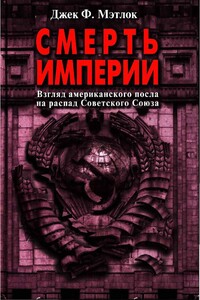
В книге рассказывается история главного героя, который сталкивается с различными проблемами и препятствиями на протяжении всего своего путешествия. По пути он встречает множество второстепенных персонажей, которые играют важные роли в истории. Благодаря опыту главного героя книга исследует такие темы, как любовь, потеря, надежда и стойкость. По мере того, как главный герой преодолевает свои трудности, он усваивает ценные уроки жизни и растет как личность.

В декабре 1971 года не стало Александра Трифоновича Твардовского. Вскоре после смерти друга Виктор Платонович Некрасов написал о нем воспоминания.
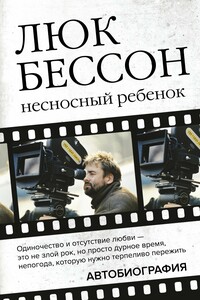
Культовый режиссер фильмов «Голубая бездна», «Никита», «Леон», «Пятый элемент», «Такси», «Жанна д`Арк» и др. Люк Бессон искренне и безыскусно рассказывает о первых тридцати годах своей жизни. Впервые столь откровенно он говорит о родителях, о неблагополучном и неприкаянном детстве, об одиночестве маленького мальчика, о любви к дельфинам, о страсти к музыке и кино. Бессон вспоминает тот день, когда наперекор матери бросил учебу и отправился в Париж снимать кино. Этот поступок положил начало его отчаянной борьбе за то, чтобы снять первый полнометражный фильм и занять свое место в мире кино. В книге рассказана история о том, как, не имея ни поддержки, ни опоры и убегая от реальности в мечты, подросток сумел определиться с профессией, как он жадно учился ремеслу у каждого причастного к миру кино, будь то режиссер, оператор или осветитель.